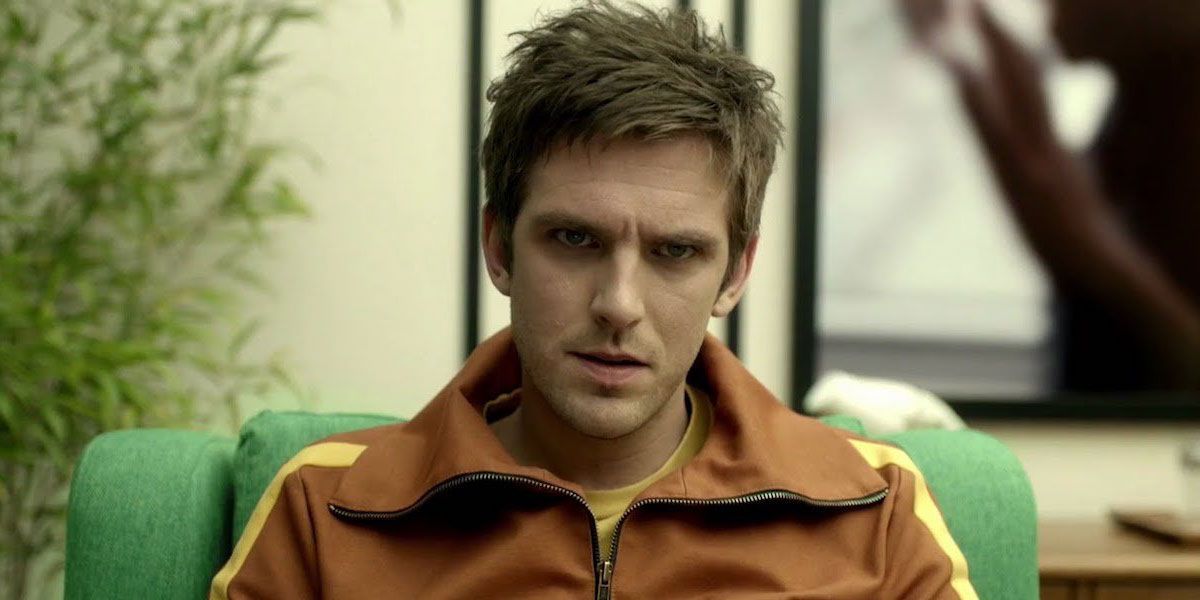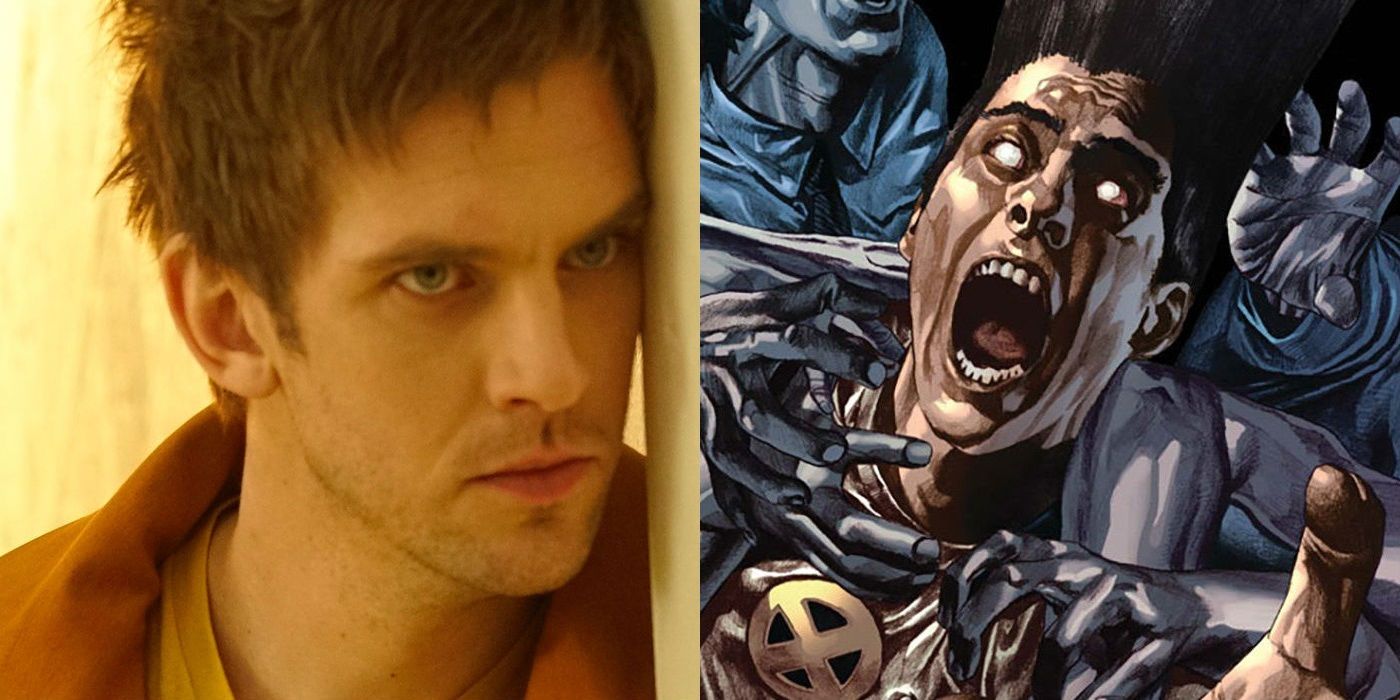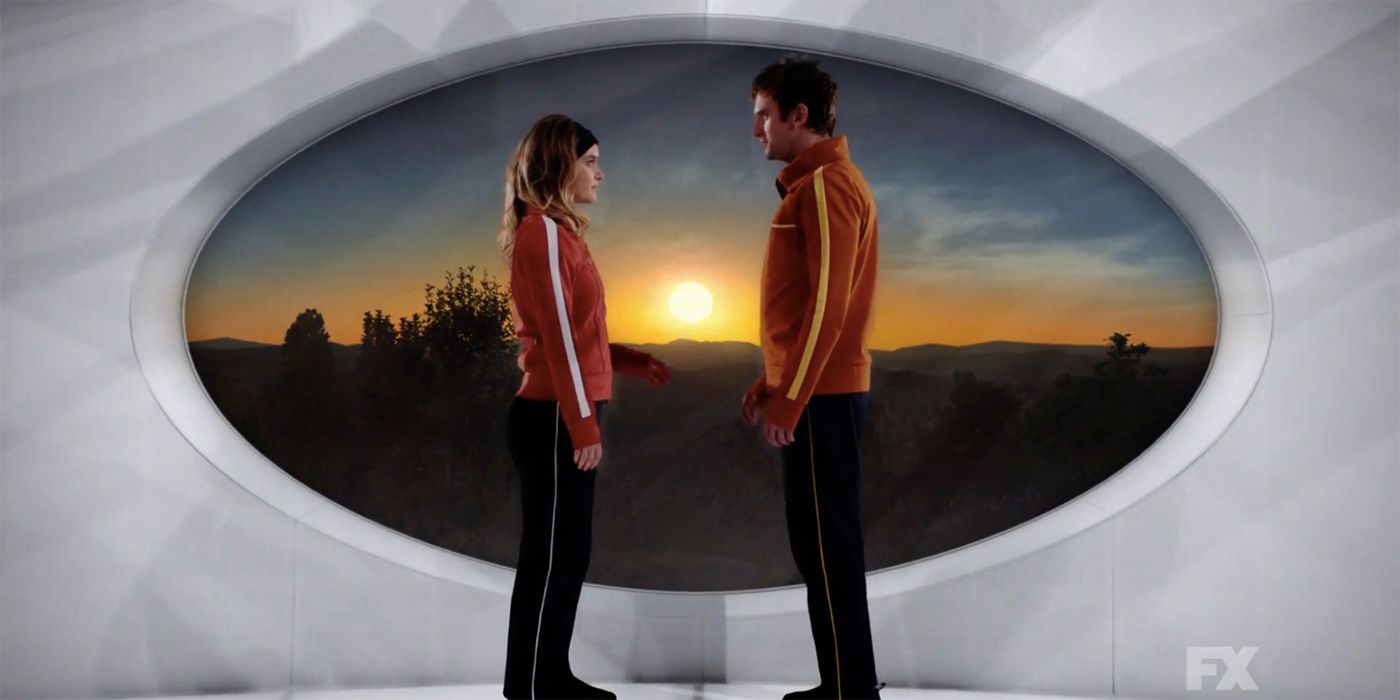As has been obvious since the very first trailer, FX's "Legion" isn't a typical comic book-based TV show. Even though it's nominally connected to Fox's live-action X-Men franchise, it appears to take place in a different -- considerably more surreal and mysterious -- world than the one inhabited by Marvel's mutants.
But at the center of the show is the title character, also known as David Haller and played by Dan Stevens, a "Downton Abbey" alum and the co-star of Disney's upcoming live-action "Beauty and the Beast." David Haller is the only character from the comic books known at this point to be a part of the upcoming series, and though the situations are different, Stevens told CBR that "all of the appearances of Legion" helped influence the TV series, which should make it at least passingly familiar to X-Men fans familiar with Professor Xavier's super-powerful son, introduced by Chris Claremont and Bill Sienkiewicz's in 1985's "New Mutants" #25.
Though there aren't any other preexisting characters in the "Legion" main cast, there's another potential mutant -- emphasis on "potential," since the show deliberately plays with perception and reality -- named Syd Barrett and played by Rachel Keller, who previously worked with "Legion" executive producer Noah Hawley on season two of FX's "Fargo." Syd meets David at a mental hospital when the series begins, and the two quickly connect -- though the truth behind their relationship looks like it'll play out over the course of the eight-episode first season.
RELATED: Legion: 15 Things You Need To Know
During a press visit to the Vancouver set of "Legion" last October, CBR spoke with Stevens and Keller in a small group of reporters (CBR's questions are marked as such) about what drew them to the material, taking inspiration from comics like the Simon Spurrier-written "X-Men: Legacy" and how research of real-life mental illnesses helped shape their performances in the February-debuting series.
CBR: Dan, Rachel, what excited you both about this project? It occupies a unique space -- it's technically part of a very big franchise, but when you see it, it's clearly totally different, with new characters and exploring very different territory.
Dan Stevens: There were lots of interesting things about this. If you scratch the surface of the Legion story, it's absolutely mind-blowing and fascinating. A delicious prospect for any actor. I think if you combined that with Noah Hawley's tried skill as a storyteller -- both in "Fargo" and also in his novels -- and his desire to do something a little bit different in the world of Marvel characters, and not feeling too beholden to a pre-existing aesthetic. It has a very different look and feel, but still with a great respect for the playfulness of the comic books, and the ideas engaged in those comic books, and touches on all sorts of things. The idea of difference, and mental illness. There's a number of big, big questions at play, but setting it up in an environment that is playful and attractive to creative types in all departments. It's the "playground" feel that I like.
Rachel Keller: Me too. Noah, first -- he's a really good reason to do things. I felt like I've learned to trust him. For me, it was, "Yeah, I'll do another TV show."
Stevens: You've worked with him before.
Keller: Yes, and I didn't even know we were really friends. He came in and out, and doesn't tell you a ton about what he wants. But you get a sense that he gathers the people that he wants to work with around him, and that becomes a really safe collaborative space.
Then the idea of mutants -- who doesn't love when a new X-Men movie comes out? That's the best feeling. To do that as an adaptation -- taking things we're so familiar with, turning them completely on their head -- that's where I want to be.
How does this version of the character differ? If he even the hero in this story?
Stevens: Is he a hero in the comic books? That's the question. He's not always there to save the day. In fact, in some of the comics, he's there to more than ruin the day, he's there to ruin reality and existence. But, y'know, we all slip up sometimes.
The scope of that character, in terms of the various manifestations over the years from the first appearance in the '80s right through "X-Men: Legacy" -- he is as much an idea as a character. Absorbing different mutants' powers, and exhibiting them, there's very often a battle, either internal or external, for control of David, and who has ultimate control of his awesome powers. Good people and bad people vying for that. Whenever he appears in the X-Men universe, there's always something pretty big going. It's not just an incidental appearance -- reality is at stake, or the existence of the X-Men, period, is in jeopardy.
So there's a great deal of excitement around what's possible with that storyline, who's coming and who's going, and trying to gain control. It's a very fertile ground for storytelling.
Will he be absorbing other mutants powers in this series?
Keller: It's hard to tell, even if that was true. Eventually, going through the story, we've come to know that the first questions that we were asking aren't the ones we're supposed to be asking. It's so beyond those very first, elementary questions of, "Is that true? Is that not true?" How does that manifest? What does that mean about love, then? What does that mean about two people being in a relationship with each other? Or people trying to figure out something about themselves that might have been hidden, or lost, or neglected, or ignored? Asking those questions lead you to better questions.
Stevens: It's certainly very playful. The role itself, for me, is delightful in that sense, and I think for a lot of us. There are a lot of interesting challenges that have been thrown out for us as performers, in all departments.
Keller: Which is why this seems the perfect Noah Hawley show. He's the quirkiest. He's a quirky, silly, really creative, inventive guy. I think this is different from "Fargo" because this is starting from the ground up. We all get to have conversations about the beginning of something, as opposed to when I walked into season two of "Fargo." We had six scripts to begin with, we had one script to begin with here. This is like an improv class every day.
CBR: Dan, it's clear you did your research on this character -- what inspired you most? The "X-Men: Legacy" run from 2012 to 2014 written by Simon Spurrier and drawn by Tan Eng Huat was really the only time readers saw Legion as a lead character.
Stevens: The "Legion Quest" stuff, that's I guess his biggest "hit" -- when he presses the wrong button and control-alt-deletes the universe. You get more of a sense of the internal workings of Legion from the Spurrier stuff, which I found very informative.
It's not like we're doing any one particular story from any of those comics. It amuses me how many elements of all of the appearances of Legion feed into what we're doing. There are certain moments where you're like, "Oh, yeah, that's kind of like..." and it's more to do with the paradigm that particular sequence takes place in, rather than, "He says this to her, and he does this to him." It's more the idea of multiple personalities locked away, and the battle for control, both internal and external, that will be familiar to people if you know the stories.
CBR: That's apparent based on the footage that was showed at New York Comic Con -- it's such a different context, but the character is recognizably that character.
Stevens: And it's kind of cool, because in a way, it's like having more comic books of Legion. It's definitely borrowing and using the established ideas of who he is. It's not like we're saying, "That's ridiculous, he's not this, this and this." It's definitely using the framework and getting us more information, a bit more story, which is great. I kind of like the idea that someone will reverse-engineer and do a comic book of what we've done. And it would work. I think that's the idea and the spirit of which it's being made. Honoring it without being too beholden to it.
Did you do any research on mental illness? And if so, how did you incorporate it into your characters?
Keller: You try to look at as much as you can until it's useful. My character, for example, she's an amalgamation of a few different preexisting people in the X-Men universe, and yet she's a new character, like most of our characters. I think that was helpful for me sometimes. Sometimes, I felt like, this is a story where a lot of times they're asking the questions as they're going, so they don't have a lot of the answers about who they are, why they're doing certain things.
The research for me keeps going. I'll read a new article about autism, or one of the drivers sent me this great video of this girl who just learned how to communicate after 12 years of her life being locked away. All different kinds of stories that this relates to that help inform as we go.
Stevens: I tend to use any work experience as a research opportunity into all sorts of crazy things. I know at least one paranoid schizophrenic, and when I was in New York, a friend of mine hooked me up with a doctor who specializes in paranoid schizophrenia -- just sitting and listening to his stories for a few hours was an amazing experience. I think especially when something is fantastical, possibly far-fetched, and takes place in this so-called comic book universe, to root it in some kind of human experience, however bizarre that might be, is useful, is engaging, and sort of makes some of it real. It's a misunderstood condition, it's a misdiagnosed condition. I think even David maybe has been misdiagnosed, but that's another story. [Laughs] It's quite amazing once you start looking into that world.
I always find it fascinating and humanizing to understand there are people out there who think quite differently. What we're led to believe -- there are plenty of people out there who don't see it like that. To play with those boundaries has been quite informative for this show.
Keller: We start the show in a mental hospital under one frame of reference. Then we leave there, and we come back there. I think for me, filming that kind of stuff, when we went back, was even more informative than doing that in the beginning, because we've been away doing other things for a while, and coming back there was a distortion of reality for us. I looked at a camera guy at one point -- "What if we wake up at some point, somewhere else, this is all a dream, it never happened?" There's been a lot of that going on. [Laughs]
Stevens: Maybe this is "Fargo 3."
"Legion" premieres Feb. 8 on FX. Keep reading CBR for more on the series.



